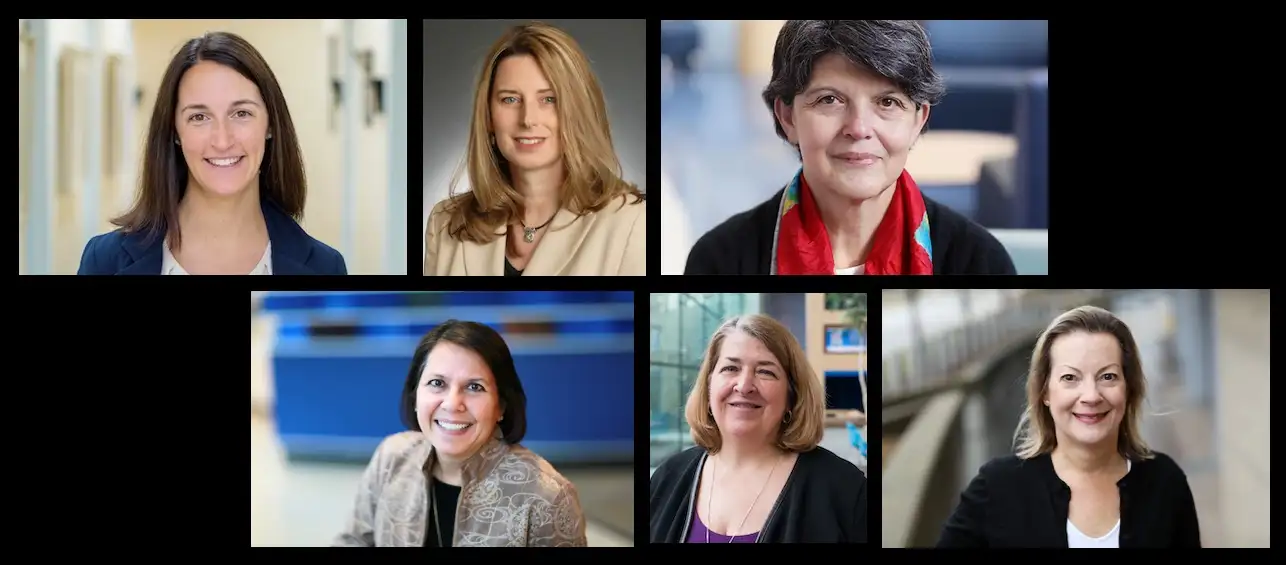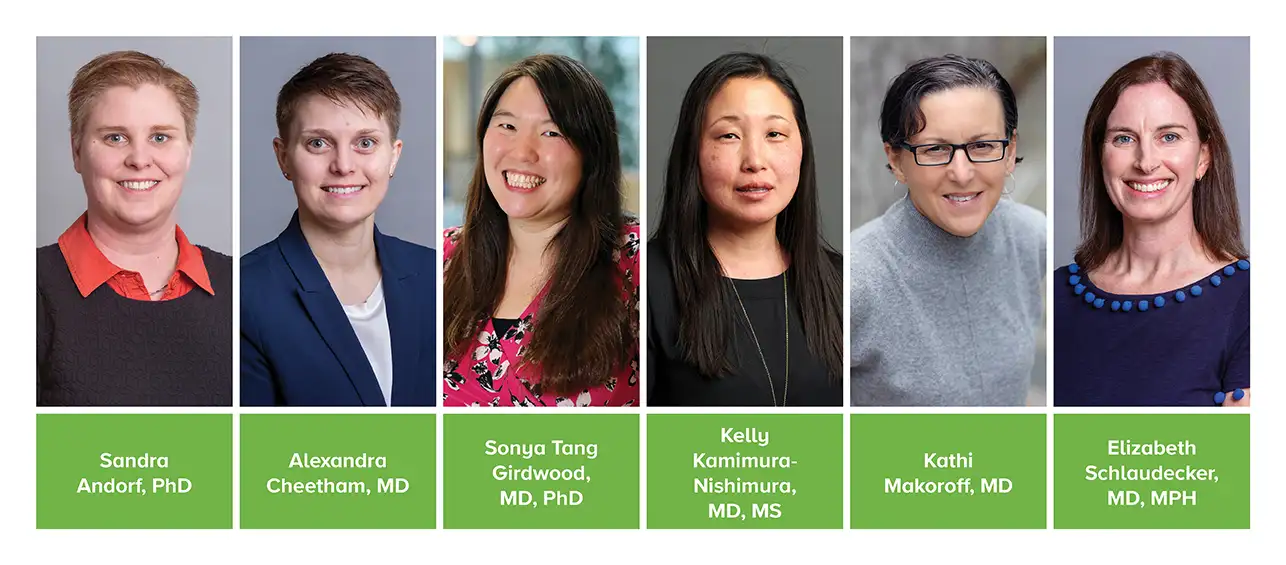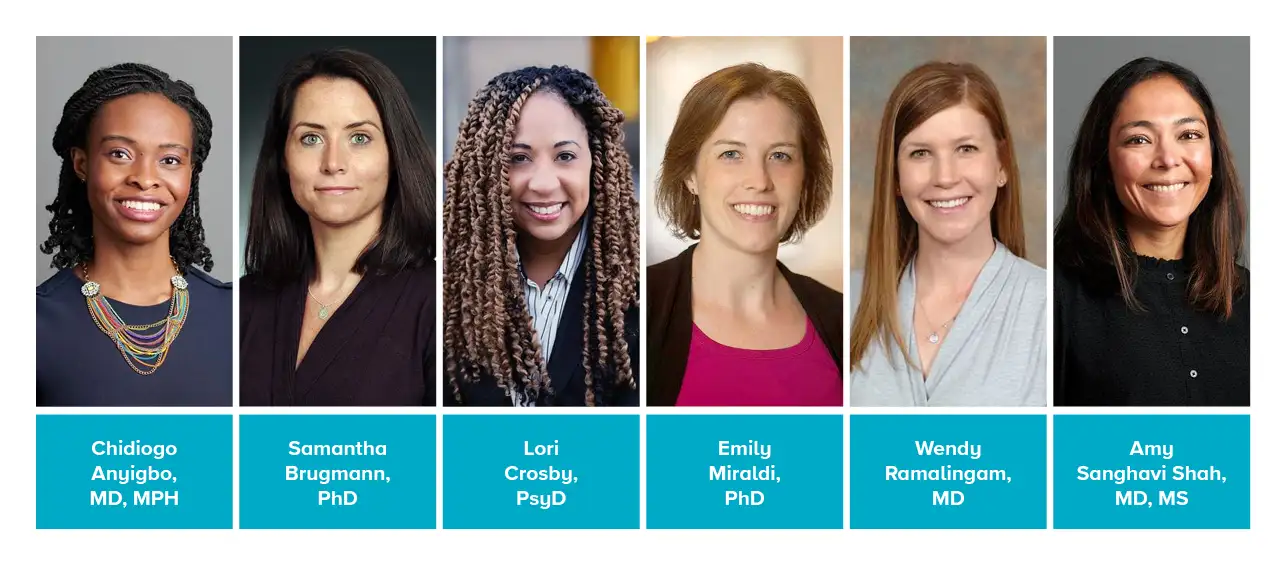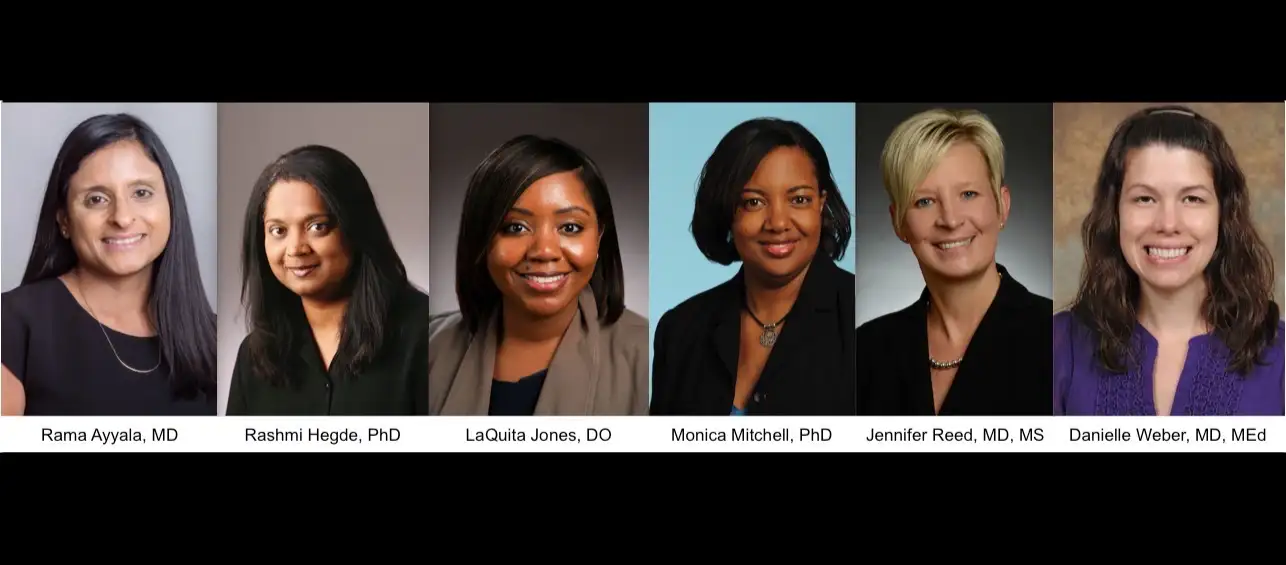When Marie Curie was searching for evidence of radium in the 1890s, women were just starting to seek jobs in the sciences. A full century would go by before the term “STEM” would become popular, and girls in particular would be more strongly encouraged to consider careers in science, technology, engineering and math.
Today, job opportunities for women in the sciences far outnumber those available during the Victorian era, including many right here at Cincinnati Children’s. To celebrate International Day of Women and Girls in Science, recognized each year on February 11, we are proud to feature a few of the many female scientists who walk our halls, practice in our research labs and help care for our patients.
These women, and many more behind the scenes, work every day to perform research that will affect lives for years to come. We are grateful for their dedication to their fields, and hope their work inspires other young girls to explore the sciences.
Andrea Beaton, MD
Pediatric cardiologist and researcher, Heart Institute
Dr. Beaton studies rheumatic heart disease, an illness affecting more than 40 million people around the world and causing over 300,000 deaths each year. She and her colleagues are working to prove that early detection and treatment with penicillin can prevent the disease from progressing. Dr. Beaton’s research also explores why rheumatic fever rarely comes to clinical attention, and she’s interested in developing a biological test for rheumatic fever.
“My team and I want to improve prevention and early detection of rheumatic heart disease so that children around the world can live fuller, longer and happier lives.”
Kim Cecil, PhD
Spectroscopist, Imaging Research Center
Director of Basic and Translational Radiology Research
Dr. Cecil’s research efforts focus on uncovering hidden aspects of injury and disease. She does this through the use of magnetic resonance imaging (MRI) and magnetic resonance spectroscopy. She and her colleagues investigate how brain development is altered from exposure to environmental exposures to heavy metals (such as lead), air pollutants, flame retardants and certain chemicals.
“I believe that clinical care, along with research, can dramatically change, and hopefully improve, the trajectory of a child’s entire life.”
Claire Chougnet, PhD, PharmD
Immunologist, Division of Immunobiology
Dr. Chougnet studies immune system dysfunction and how the human immune system reacts to infection and inflammation. She has made important research advances in studies of immune response as it relates to chronic inflammation (such as HIV and aging), and neonatal development. Dr. Chougnet was recently selected as the inaugural Margaret K. Hostetter Endowed Chair, which recognizes the exemplary achievements and service of female research faculty at Cincinnati Children’s. She was selected based on her sustained outstanding accomplishments in research, leadership and mentorship.
“More than thirty years ago, I chose to become a researcher, and I have never regretted it. Working alongside so many talented colleagues, and learning from them every day, remains truly amazing.”
Gurjit “Neeru” Khurana Hershey, MD, PhD
Pediatric allergist and immunologist
Endowed Professor and Director of Asthma Research
Dr. Hershey manages a research lab and a team of researchers who investigate key questions about childhood asthma, atopic dermatitis, food allergy and allergic rhinitis. She and her team study allergic diseases to better understand how allergic diseases develop and why they persist in some children. Their goal is to improve the prediction, prevention and management of these common disorders. They are also working to identify and test new strategies and treatments for the prevention and treatment of allergic diseases, especially asthma.
“By focusing on the health of children, I believe we are guaranteeing a healthier, better future.”
Mary Allen Staat, MD, MPH
Pediatrician and researcher specializing in infectious diseases, international adoption and travel medicine
Director, International Adoption Center
Dr. Staat’s research involves the study of contagious illnesses in children. She and her team are interested in learning about when children are infected with certain pathogens, how the infection impacts them, and how their immune system responds to it. They also aim to better understand and identify the immune response to the flu and COVID-19 in babies. Their hope ultimately is to understand the immune responses to these infections so that effective vaccines, including a universal influenza vaccine, can be developed.
“My colleagues and I are thankful for all the families who participate in our studies and help us learn how to prevent infections in the future. We are truly passionate about the research we are pursuing and are excited about how this work will make a difference!”
Kimberly Yolton, PhD
Developmental psychologist and epidemiologist
Director of Research Section, General and Community Pediatrics
Dr. Yolton studies exposures and experiences that may alter a child’s development from infancy through the teen years. She and her team of researchers have studied a variety of common environmental toxicants—including tobacco smoke, air pollution, pesticides and industrial chemicals—and how they may impact infant and child development, behavior, and health outcomes. They were the first to describe links between secondhand smoke exposure and disturbances to child sleep, and they have more recently reported associations between exposure to air pollution and mental health outcomes in adolescence.
“The extraordinary commitment of our research participants and amazing study staff have allowed us to gather longitudinal data advancing our understanding of the impact of exposures from gestation to young adulthood.”
Note: Researchers are pictured above left to right in alphabetical order.





